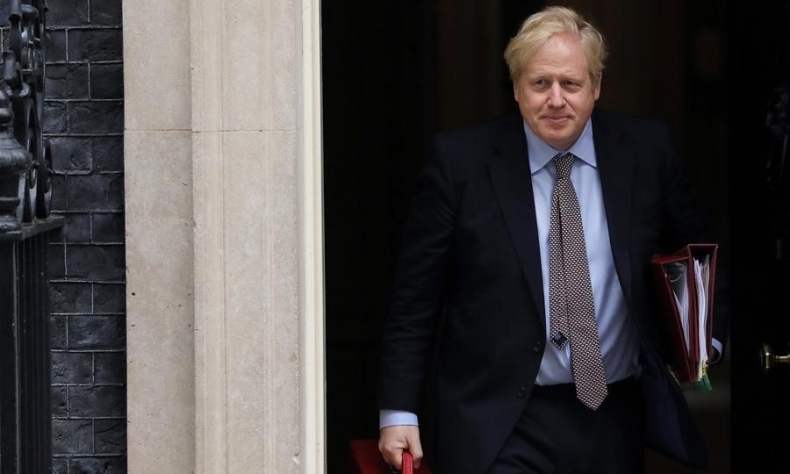Did 2021 Mark the Year of Boris Johnson’s Unraveling?

The Conservative Party now sits considerably behind the Labour Party in the polls, its worst scoring in years, while the Prime Minister faces ever-growing discontent from his backbenches.
Boris Johnson is a one-of-a-kind politician. His eccentric “act” and brand of populist nationalism allowed him to become, undoubtedly, the most electorally successful British Conservative leader since Margaret Thatcher: two times mayor of London in a staunchly Labour capital city; a pioneer of the successful leave campaign which brought about Brexit and brought down the government of David Cameron, and later leader of the party himself; commanding a thumping majority in 2019 and sweeping away opposition leader Jeremy Corbyn.
Each and every time, Johnson seemed to defy political gravity and realize astounding victories, winning voters into his mix who would never have previously contemplated voting Conservative, such as the “red wall” working-class voters of Northern England. But along the way, these victories have been coupled with what is otherwise perceived to be widespread incompetence, scandals, mishaps and mismanagement above all. To his critics, his public appeal has frequently compensated for his failings in a way which, most of the time, seemingly made him “politically invincible.” However, as we near the end of 2021, the argument is increasingly holding water that Johnson’s famed luck might just be running out as the consequences of his decisions begin to catch up with him and erode public support.
The Conservative Party now sits considerably behind the Labour Party in the polls, its worst scoring in years, while the Prime Minister faces ever-growing discontent from his backbenches. The tipping point had proven to be a lasting scandal surrounding a “lockdown Christmas party” in 2020, openly defiant of the COVID-19 rules his own government had set. The aftermath shattered public support and trust in the government, compounded by the fact that it had been leaked at a time when Johnson was setting new rules concerning the Omicron variant. The damage was significant.

Worse still, Johnson is presiding over a dramatic reversal in Britain’s economic fortunes which is also attributed to his signature policy, Brexit, which was institutionalized in its final form a year ago this January. The withdrawal of the United Kingdom from the European Union, its closest and most integrated market, has hammered British supply chains, induced labor shortages, reduced foreign investment and produced long-term attrition on GDP growth which could total 4-5%. This has been combined with a battering that the economy faced from his mismanagement of the pandemic, which is still yet to reach its pre-pandemic size. Instead of rebounding, the economy appears to have stagnated, with growth straddled at just 0.1% month on month from October to December.
Despite this, Boris Johnson has sought to compensate for the economic fallout of Brexit by resorting to populist nationalism which seeks to rebrand the country as “Global Britain,” playing on the nostalgia of great power memories. However, it can’t adequately compensate for the failure to deliver at home, a Britain which is shrinking in terms of gross domestic product and failing to make sensible foreign policy decisions in its best interest.
In this case, what lies ahead for Johnson? Will 2022 be a better year? Johnson might be hoping the impact of the COVID-19 pandemic stabilizes and he does not have to make any more unpopular decisions, though shaking off a lack of confidence and trust in himself will be a more difficult challenge, especially if he becomes a scapegoat for declining standards of living, rising prices and a struggling economy. The question remains, however: Is it wise enough to run a country merely on populism with a policy of all style and no substance? It seems that the consequences are catching up with him.
 Facebook
Facebook
 Twitter
Twitter
 Linkedin
Linkedin
 Google +
Google +







